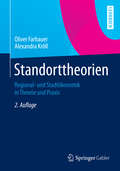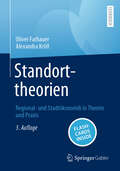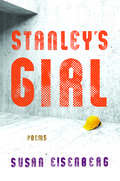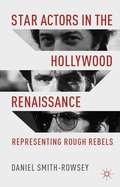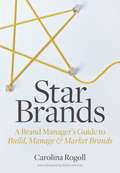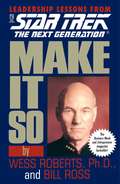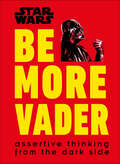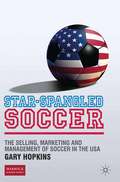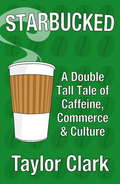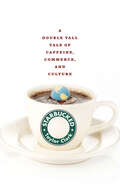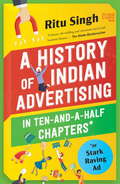- Table View
- List View
Standorttheorien: Regional- und Stadtökonomik in Theorie und Praxis
by Alexandra Kröll Oliver FarhauerDas Buch stellt sowohl traditionelle als auch neuere und neueste Theorien zur Standortwahl vor. Die traditionellen Standorttheorien umfassen die klassische Standortlehre, die Agglomerationsökonomik sowie die Untersuchung der Effekte unterschiedlicher Branchenstrukturen auf eine Stadt oder Region. Daneben werden neuere Ansätze wie die Cluster- und Netzwerktheorie von Michael Porter und neueste Erklärungsmodelle wie die Neue Ökonomische Geographie und die Theorie der Kreativen Klasse präsentiert. Sie alle machen Gründe für die räumliche Ballung wirtschaftlicher Aktivität anschaulich. Damit der Leser regional- und stadtökonomische Untersuchungen (z.B. im Rahmen von Seminar- und Abschlussarbeiten, Kurzanalysen etc.) selbst durchführen kann, wird auch Wissen über die empirische Methodik vermittelt. So werden verschiedenste Maße der räumlichen Konzentration und regionalen Spezialisierung vorgestellt sowie die Durchführung einer Shift-Share- und Input-Output-Analyse demonstriert.Das Lehrbuch zeichnet sich durch seine besondere didaktische Aufbereitung aus: So werden Gleichungen in den theoretischen Kapiteln stets ausführlich interpretiert, damit der Gedankengang dahinter ersichtlich wird. Auf diese Weise streben die Autoren an, dem Leser die Scheu vor komplexeren Modellen oder auch nur „umständlich“ aussehenden Formeln zu nehmen. Die 2. Auflage wurde komplett durchgesehen und korrigiert.
Standorttheorien: Regional- und Stadtökonomik in Theorie und Praxis
by Alexandra Kröll Oliver FarhauerDas Buch stellt sowohl traditionelle als auch neuere und neueste Theorien zur Standortwahl vor. Die traditionellen Standorttheorien umfassen die klassische Standortlehre, die Agglomerationsökonomik sowie die Untersuchung der Effekte unterschiedlicher Branchenstrukturen auf eine Stadt oder Region. Daneben werden neuere Ansätze wie die Cluster- und Netzwerktheorie von Michael Porter und neueste Erklärungsmodelle wie die Neue Ökonomische Geographie und die Theorie der Kreativen Klasse präsentiert. Sie alle machen Gründe für die räumliche Ballung wirtschaftlicher Aktivität anschaulich. Damit der Leser regional- und stadtökonomische Untersuchungen (z.B. im Rahmen von Seminar- und Abschlussarbeiten, Kurzanalysen etc.) selbst durchführen kann, wird auch Wissen über die empirische Methodik vermittelt. So werden verschiedenste Maße der räumlichen Konzentration und regionalen Spezialisierung vorgestellt sowie die Durchführung einer Shift-Share- und Input-Output-Analyse demonstriert.DasLehrbuch zeichnet sich durch seine besondere didaktische Aufbereitung aus: So werden Gleichungen in den theoretischen Kapiteln stets ausführlich interpretiert, damit der Gedankengang dahinter ersichtlich wird. Auf diese Weise streben die Autoren an, dem Leser die Scheu vor komplexeren Modellen oder auch nur „umständlich“ aussehenden Formeln zu nehmen. Neu in der 3. Auflage: Testen Sie Ihr Wissen mit Fragen und Antworten zum Buch in der Springer Nature Flashcards-App!
Stanley Black & Decker, Inc.
by William E. FruhanThis case allows instructors to explore shareholder value creation and transfer opportunities in merger and acquisition transactions. It also invites an examination of corporate governance issues surrounding CEO compensation. This case is quite brief (a total of four pages), so the balance between thinking time and reading setup time for students is quite attractive.
Stanley’s Girl: Poems
by Susan EisenbergThe fiercely lyrical poetry of Stanley’s Girl is rooted in Susan Eisenberg’s experience as one of the first women to enter the construction industry and from her decades gathering accounts of others to give scaffolding to that history. Eisenberg charts her own induction into the construction workplace culture and how tradeswomen from across the country grappled with what was required to become a team player and succeed in a dangerous workplace where women were unwelcome. The specifics of construction become metaphor as she explores resonances in other spheres—from family to other social and political issues—where violence, or its threat, maintains order. Prying open memory, her poems investigate how systems of discrimination, domination, and exclusion are maintained and how individuals and institutions accommodate to injustice and its agreed-on lies, including her own collusion. Poems in this collection probe workplace-linked suicide, sexual assault, and sometimes-fatal intentional accidents, as well as the role of bystander silence and the responsibility of witness.
Staples (A)
by Marco Iansiti Myra M. Hart Barbara FeinbergChronicles development of a new business concept. Starts with Stemberg's search for a new employment opportunity, then provides details of his decision to launch a new venture concept through careful matching of personal capabilities and experience against a variety of marketing opportunities. Stemberg redefines his supermarket skills as distribution skills and systematically searches for industries where they can be applied.
Staples.com
by Thomas R. Eisenmann Joanna Jacobson Gillian MorrisStaples.com, the online unit of the U.S. office supplies retailing chain Staples, faces a range of strategic and organizational issues as it accelerates its growth. Should it pursue only existing Staples customers or consumers who do not shop in Staples stores? How quickly should it add services (e.g. legal, payroll, accounting) to its product offering? Which operating functions should be shared between the online units and the core business? Should Staples.com be spun off as a tracking stock?
Staples: A Year in the Life of a Start-Up
by Myra M. HartThe case provides information on the development of the office superstore concept, building partnerships, creating the business plan, and recruiting a management team. Focuses on the detailed level of decision making required to transform an idea into a viable business. Heavy emphasis is placed on operating plans and integration. A rewritten version of earlier cases.
Star Actors in the Hollywood Renaissance
by Daniel Smith-RowseyIn the late 1960s and early 1970s, a new generation took over the leading roles in Hollywood films. These untraditional-looking young men were promoted and understood as alienated and ironic everymen, and exerted a powerful, and until now unexplored, influence over a movement often considered the richest in Hollywood's history.
Star Brands: A Brand Manager's Guide to Build, Manage & Market Brands
by Debbie Millman Carolina RogollFor anyone who wants to learn the fundamentals of branding in an approachable way without poring over dense text or hiring an expensive consultant, Star Brands presents a unique model that offers structured guidance and professional tips for building, managing, and marketing any brand. Created by savvy brand manager Carolina Rogoll, the star brand model is a perfect intersection of solid marketing and management theory with an approachable, visually oriented design. The author teaches step-by-step how to assess a brand’s unique challenge, how to define the brand’s equity and target, how to craft a solid brand growth strategy, and how to measure success once the brand is in the marketplace. The book includes case studies from famous star brands as well as interviews with top business school professors, advertising agency leaders, and former CEOs. Topics covered include the star brand model; leaders behind star brands; brand assessment and goal setting; defining brand equity; selecting a brand target; insights, benefits, ideas; theory from the best marketing and managing resources; marketing strategy; how to build a marketing plan; and much more, including exercise worksheets to practice on!The author combines her experience building brands at the front lines of a big multinational company with top-notch marketing and management theory. What results is an ideal primer for anyone seeking structured guidance on building a brand for a client, managing a brand, or even starting a brand for oneself.Allworth Press, an imprint of Skyhorse Publishing, publishes a broad range of books on the visual and performing arts, with emphasis on the business of art. Our titles cover subjects such as graphic design, theater, branding, fine art, photography, interior design, writing, acting, film, how to start careers, business and legal forms, business practices, and more. While we don't aspire to publish a New York Times bestseller or a national bestseller, we are deeply committed to quality books that help creative professionals succeed and thrive. We often publish in areas overlooked by other publishers and welcome the author whose expertise can help our audience of readers.
Star Brands: A Brand Manager's Guide to Build, Manage & Market Brands
by Debbie Millman Carolina RogollFor anyone who wants to learn the fundamentals of branding in an approachable way without poring over dense text or hiring an expensive consultant, Star Brands presents a unique model that offers structured guidance and professional tips for building, managing, and marketing any brand. Created by savvy brand manager Carolina Rogoll, the star brand model is a perfect intersection of solid marketing and management theory with an approachable, visually oriented design. The author teaches step-by-step how to assess a brand’s unique challenge, how to define the brand’s equity and target, how to craft a solid brand growth strategy, and how to measure success once the brand is in the marketplace. The book includes case studies from famous star brands as well as interviews with top business school professors, advertising agency leaders, and former CEOs. Topics covered include the star brand model; leaders behind star brands; brand assessment and goal setting; defining brand equity; selecting a brand target; insights, benefits, ideas; theory from the best marketing and managing resources; marketing strategy; how to build a marketing plan; and much more, including exercise worksheets to practice on! The author combines her experience building brands at the front lines of a big multinational company with top-notch marketing and management theory. What results is an ideal primer for anyone seeking structured guidance on building a brand for a client, managing a brand, or even starting a brand for oneself.
Star Product Designers
by Irene AlegreIncludes 350 illustrations and full-color photographsStar Product Designers offers an insiders look at the best product designers working today. With the goal of eliminating the need for instruction manuals, every designer in this book endeavors to create products that are user-friendly, efficient, and beautiful. Perfect for both the amateur designer as well as the most accomplished--and anyone else in between--this comprehensive compendium reveals the design process, from concept to finished product, of some of the most innovative products on the market today. Featuring a wealth of concept sketches, profiles of the leading designers and design firms, and gorgeous, full-color photographs of the products themselves, this book is a must-have for anyone interested in understanding product design and the creative design process.
Star Trek: The Next Generation
by Wess Roberts Bill RossT he fast-changing business world of today is far different from just a few years ago. Success in today's marketplace requires new leadership techniques, new thinking, and an eye on the future . . . .In Make It So: Leadership Lessons from Star Trek: The Next Generation®, Wess Roberts and coauthor Bill Ross take their inspiration from today's most striking and most popular vision of the future -- Star Trek -- an unprecedented television, feature film and publishing phenomenon. From the top-rated television series Star Trek: The Next Generation, Roberts and Ross find a new symbol for successful leadership: Captain Jean-Luc Picard.As entertaining as it is useful, Make It So captures the mythos of Star Trek: The Next Generation as it delivers dramatically rich lessons on leadership, including the importance of the ability to focus on a single "mission," effective communication, teamwork, honor . . . and other important concepts. The examples are taken from the on-screen adventures of Captain Picard and the Starship EnterpriseTM, but the lessons and the benefits are real -- and can be applied to everyday situations where the goal is the kind of high-performance organization embodied by the crew of the U.S.S. EnterpriseTM 1701-D.Sure to appeal to Star Trek enthusiasts and serious students of leadership alike, Make It So is the most exciting business book on the shelves -- the one book that shows the future of modern leadership while giving managers the tools they need for success today!
Star Wars Be More Vader: Assertive Thinking from the Dark Side (Be More Ser.)
by Christian BlauveltMove from apprentice to master with assertiveness advice from the Star Wars™ galaxy's most powerful leaders, including Darth Vader, Palpatine, and Supreme Leader Snoke.Negotiating the workplace can be an impossible task, especially if that workplace is a towering, all-powerful force intent on taking over the galaxy. Whether your day-to-day work involves developing plans to build the Death Star, building a rebellion, or simply trying to make the printer work, the leaders of the Star Wars universe offer essential guidance on how to assertively deal with common professional pitfalls.Find out how to get a promotion, beat the competition, manage difficult employees, and move from intern to CEO with top tips from Star Wars: Be More Vader and the most powerful villains in the Star Wars movies.The perfect gift for colleagues and friends alike, Star Wars: Be More Vader is a tongue-in-cheek guide on how to advance your career, featuring favourite moments from the Star Wars series alongside hilarious advice and iconic, inspirational Star Wars quotes.© & TM 2018 LUCASFILM LTD. Used Under Authorization.
Star-Spangled Soccer
by Gary HopkinsStar-Spangled Soccer traces the development of soccer in the USA. It is the first book that tells the story of how the sport rose to extreme highs and suffered almost catastrophic lows as it fought to position itself on the American sports landscape, beginning with the announcement from FIFA in 1988 that America would host the 1994 World Cup.
StarKist (A)
by Richard H.K. Vietor Forest Reinhardt Peggy DuxburySet in April 1990, this case focuses on H.J. Heinz and its subsidiary, StarKist, the largest producer of canned tuna in the United States. During the 1980s, the public became increasingly concerned about tuna fishing practices that killed dolphins. StarKist was the target of a consumer boycott initiated by the environmental community. Worried that bad publicity from the boycott would threaten the StarKist brand name, as well as Heinz's other branded products, senior management at Heinz decided that StarKist would become the first tuna processor to no longer purchase tuna caught by methods that killed dolphins. In making the decision, Heinz executives were not sure how StarKist's two major competitors would react, or how the decision would impact the procurement of raw tuna, StarKist's single largest expense item. Discusses the harvesting (fishing) and processing (canning) sector of the tuna industry. Also discusses the Marine Mammal Protection Act, and U.S. trade sanctions against Mexico and other countries.
Starbucked
by Taylor ClarkSTARBUCKED is the first book to explore the incredible rise of the Starbucks Corporation and the caffeine-crazy culture that fuelled its success. Part Fast Food Nation, part social history, STARBUCKED combines investigative heft with witty cultural observation. How did Starbucks become an international juggernaut? What made the company so beloved that more than 40 million customers visit every week, yet so loathed that protestors have firebombed its stores? Why did Americans suddenly become willing to pay $4.50 for a cup of coffee? And why did the world follow? Taylor Clark provides an objective, meticulously reported look at how Starbucks manipulates psyches and social habits to snare loyal customers, and why many of the things we think we know about the coffee chain are false.
Starbucked: A Double Tall Tale of Caffeine, Commerce, and Culture
by Taylor ClarkSTARBUCKED will be the first book to explore the incredible rise of the Starbucks Corporation and the caffeine-crazy culture that fueled its success. Part Fast Food Nation, part Bobos in Paradise, STARBUCKED combines investigative heft with witty cultural observation in telling the story of how the coffeehouse movement changed our everyday lives, from our evolving neighborhoods and workplaces to the ways we shop, socialize, and self-medicate. In STARBUCKED, Taylor Clark provides an objective, meticulously reported look at the volatile issues like gentrification and fair trade that distress activists and coffee zealots alike. Through a cast of characters that includes coffee-wild hippies, business sharks, slackers, Hollywood trendsetters and more, STARBUCKED explores how America transformed into a nation of coffee gourmets in only a few years, how Starbucks manipulates psyches and social habits to snare loyal customers, and why many of the things we think we know about the coffee commodity chain are false.
Starbucks Coffee Company in the 21st Century
by Katherine Miller Nancy F. Koehn Marya BesharovThe case explores the opportunities and challenges confronting Starbucks in the early 21st century. For more than 15 years, Starbucks has grown swiftly and successfully, helping create a large, dynamic market for specialty coffee, building one of the world's most powerful brands, and forging a new business model based on industry disrepair and responsible global citizenship. In 2008, Starbucks leadership faces a range of issues--inside and out of the company--related to that success. This case examines these issues in the context of a changing economy, increased competition, evolving consumer priorities, and the organization's place on the larger global stage.
Starbucks Coffee Company: Transformation and Renewal
by Nancy F. Koehn Kelly Mcnamara Nora N. Khan Elizabeth LegrisStarbucks Coffee Company: Transformation and Renewal analyzes the turnaround and reconstruction of Starbucks Coffee Company from 2008 to 2014 as led by CEO and co-founder Howard Schultz. The case offers executives and students an opportunity to examine in depth how Schultz and his team saved Starbucks from near-collapse, by both executing a deep, comprehensive return to its core values and, at the same time, investing in a range of new products, customer experiences and organizational capabilities designed to make the company fit for enduring success in a turbulent global economy. Set against the backdrop of the Great Recession, the case also considers the impact of unprecedented important shifts in consumer spending and confidence as well as new competitive forces on Starbucks' transformation. The case concludes by examining Schultz's own leadership journey, the lessons he learned personally during Starbucks transformation, and how he is using these lessons-within Starbucks and on the national stage-to redefine the roles and responsibilities of a public corporation in the 21st century.
Starbucks and Conservation International
by James E. Austin Cate ReavisStarbucks, the world's leading specialty coffee company, developed a strategic alliance with Conservation International, a major international environmental nonprofit organization. The purpose of the alliance was to promote coffee-growing practices of small farms that would protect endangered habitats. The collaboration emerged from the company's corporate social responsibility policies and its coffee procurement strategy. The initial project was in the southern Mexican state of Chiapas and resulted in the incorporation of shade-grown coffee into the Starbucks product line, providing an attractive alternative market for the farmer cooperatives at a time when coffee producers were in economic crisis due to plummeting world prices. Simultaneously, the company had to deal with growing pressures from nonprofit organizations in the Fair Trade movement, demanding higher prices for farmers. Starbucks was reviewing the future of its alliance with Conservation International and its new coffee procurement guidelines aimed at promoting environmentally, socially, and economically sustainable coffee production. The nature of the industry puts the case in the global context from both the supply and demand sides.
Starbucks: Delivering Customer Service
by Youngme Moon John A. QuelchStarbucks, the dominant specialty-coffee brand in North America, must respond to recent market research indicating that the company is not meeting customer expectations in terms of service. To increase customer satisfaction, the company is debating a plan that would increase the amount of labor in the stores and theoretically increase speed-of-service. However, the impact of the plan (which would cost $40 million annually) on the company's bottom line is unclear.
Starbucks: Reaffirming Commitment to the Third Place Ideal
by Francesca Gino Jeff Huizinga Katherine CoffmanOn April 12, 2018, two African American entrepreneurs had scheduled a business meeting at a Starbucks in Philadelphia's Rittenhouse Square neighborhood. They sat without ordering, waiting for a local businessman to show up for the meeting. The store manager called 911 on them, despite the fact that they were behaving neither violently nor disruptively. When the police arrived soon after the call, they arrested the young men. The incident was viewed by the Starbucks' leadership team, including the CEO, as "a disheartening situation" and, in the words of John Kelly, the company's Senior VP of Public Affairs and Social Impact, "a profound failure to live up to our ideals and a violation of our values." Starbucks, which employed around 175,000 individuals nationwide and served more than 4 million customers daily in its approximately 8,000 U.S. stores, strived to abide by its mission statement: "...To inspire and nurture the human spirit, one cup, one person, one neighborhood at a time." The case describes how the company and its leadership responded to the crisis. To react to the incident, the leadership decided to close down its stores for a day of unconscious bias training, aimed at raising awareness of racial bias and discrimination in particular. The company also started a journey of providing more training and development for the partners, to assure that they lived by the company values on a daily basis, and revised store policy that, the leadership believed, contributed to how the store managers and employees in the Rittenhouse Square store behaved back in April 2018. As the case closes, CEO Steve Johnson reflects on how he could assure that every Starbucks employee not only understood the company mission and values, but truly connected to them emotionally and carry them out daily in their work.
Stark Raving Ad: A Giddy Guide to Indian Ads You Love (or Hate)
by Ritu SinghPresenting, for the first time ever, the whole truth about Indian advertising and nothing but the truth (with just a pinch of salt). For centuries, Indians have been asking all kinds of questions ? about the meaning of life, our place in the cosmos, why we have so many gods, and other such vital things. In the last hundred-odd years, marketing and advertising has given us none of those answers. What it has given us, nonetheless, is life-altering stuff. It has attempted to make men Fair and Handsome. It has battled to make women 18 Again. And to both men and women it has given Tinder loving care. It has made us realize that we like pizza as much as the next Italian ? as long as Dominos puts keema dopyaaza on it and tempts us with, `Hungry kya?? It has made us re-evaluate our life choices and ask thought-provoking questions like `Kitna deti hai?? of our cars and `Kya aap Close-Up karte hain?? of our countrymen. In short, it has enriched our lives with quirky quips, unforgettable characters, inter-brand scuffles, clever insights, virtual lures and jaw-dropping controversies. In Stark Raving Ad, you?ll find unbusiness-like stories from Indian advertising through the ages ? the hits, the misses, the also-rans and the banned. This is the non-classic book about advertising in India that no one asked for.'
Stark führen
by Bianca FuhrmannDieses Buch vermittelt praxiserprobte Methoden, mit denen Sie Ihre Führungsstärken ausbauen und Ihren Führungsalltag nachhaltig optimieren. So führen Sie mit innerer Sicherheit, größerem Wirkungsgrad und steigern deutlich Ihre Produktivität und Ihren Erfolg. Sie lernen, Ihre Stärken, Autonomie und Ihr Zielbewusstsein auszubauen und mit dem Menschen statt gegen ihn zu arbeiten. Sie erfahren, dass Führung auch einfach, schnell und unkompliziert sein kann. Die Kombination aus Selbstreflexion, Zeitmanagement, Führungstechniken und Mitarbeiterentwicklung bietet Ihnen das ideale Praxisbuch für den Führungsalltag.
Starke Texte der Unternehmenskommunikation: Grundlagen und Anwendungsbeispiele von Public Relations bis Social Media
by Annika SchachDieses Grundlagenwerk zu Texten in Public Relations, Marketing und Werbung bietet einen fundierten und praxisnahen Überblick für Ausbildung, Studium und Berufspraxis.Schreibkompetenz ist in der Kommunikationsbranche wichtiger denn je – aufgrund von unterschiedlichsten digitalen Formatentwicklungen und der wachsenden Aufmerksamkeit für zielgruppengerechte und angemessene Sprache in der Öffentlichkeit. Dazu benötigt es Wissen über zeitgemäße Kommunikation sowie spezifische Kenntnisse über einzelne Textsorten, Formate und Kanäle.Im ersten Buchteil thematisiert die Autorin aktuelle Entwicklungen in Medien und Gesellschaft und beschreibt ihre grundlegenden Auswirkungen auf die Schreibarbeit. Im zweiten Teil werden unterschiedliche Textsorten anhand von Definitionen, Inhalten und Aufbau, sprachlichen Merkmalen und konkreten Praxisbeispielen vorgestellt. Neu in die 2. Auflage aufgenommen wurden die Themen Gendersensibilität und Barrierefreiheit sowie Kommunikation in Audio- und Videoformaten.Ein unverzichtbarer Leitfaden für alle, die heute mit starken Texten professionelle Unternehmenskommunikation betreiben möchten.Für Leser kostenlos: Testen Sie Ihr Wissen mit Fragen und Antworten zum Buch in der Springer-Nature-Flashcards-App.
